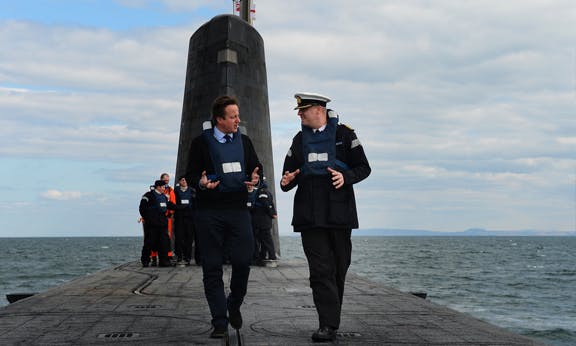Politicians are not good people

Events in the UK over the last week have made me realise that politicians are just not good people.
Take the debate in the British parliament over the future of the UK’s nuclear weapons program, “Trident”.
The British parliament is hardly a bastion of upstanding moral forthrightness. Who could forget the expenses scandal in which MPs were found to have claimed public compensation for things like duck houses and moat cleaning? There was the charming footage of baron John Sewel (of the House of Lords) enjoying large quantities of cocaine in the company of many prostitutes. Finally, there was the gift that kept on giving: David Cameron and his special porcine friend, or “Pig gate”, as the scandal has been cheerfully named.
The debate over Trident makes these – shall we say, indiscretions – look innocent. The most important honourable exception has been Jeremy Corbyn, leader of the British Labour Party. He clarified: “I make it clear … that I would not take a decision that kills millions of innocent people. I do not believe the threat of mass murder is a legitimate way to go about dealing with international relations”.
Good to hear. It’s gone a long way to alleviating the doubts about Corbyn’s character raised by the unruly and frankly desultory state of his rose bushes. Despite his strong stand, around 140 of Corbyn’s (hopefully soon-to-be-deselected) MPs have defied their leader and voted with the Tories to renew Britain’s nuclear submarine program.
Even though we all know what nuclear weapons are, it’s easy to avoid thinking about what they do. While the British Navy doesn’t reveal the power of its warheads, 100 kilotons each is a generally agreed upon estimate. It is depressingly easy to calculate what effects they could have on a city like Melbourne, using the website nuclearsecrecy.com/nukemap.
Detonated midair, a 100kt warhead would produce a fireball as wide as the CBD, north to south. The radiation would extend to the inner suburbs. Within this radius, mortality from radiation alone would be between 50 and 90 percent. This says nothing about the blast radius, which would cover all of Collingwood, Richmond, Southbank and North Melbourne.
The thermal radiation would extend as far north as Brunswick and as far south as South Yarra. Within this radius, anyone not shielded can expect third degree burns, which are, horrifyingly, painless at first. The casualties from such a blast would be in the hundreds of thousands. This figure could be much higher in a more densely populated city (let’s say, for no reason at all, Tehran or Pyongyang). Why would Labour MPs vote for the possibility of inflicting this on anyone? Here’s what Toby Perkins, former shadow defence minister, said:
“Labour members should know that they are voting in accordance with the policy they were elected on and in support of working trade union members and our heroic armed forces personnel, that they are contributing towards global security, that backing Vanguard is in keeping with our internationalist principles, and that it is the right thing to do.”
John Woodcock, Labour MP for Barrow and Furness, lamented that the party’s failure to vote unanimously in favour of nuclear weapons was a “terrible indictment of how far this once great party has fallen”.
One of the most chilling phenomena associated with the bombing of Hiroshima and Nagasaki was that the thermal radiation imprinted the shadows of people who had been incinerated on the surfaces behind them. This is the price Toby Perkins believes in paying in order to stick to party policy, guarantee jobs and uphold internationalism. This is Woodcock’s gold standard of greatness.
Theresa May went a little further in her first prime ministerial speech. Asked if she was “personally prepared to authorise a nuclear strike that can kill a hundred thousand innocent men, women and children”, May replied: “Yes”.
It is an interesting fact of modern politics that leaders are often judged in moral terms. Qualities such as personal integrity, warmth, kindness, strength, honesty and so on, are often seen as more important than the policies and social interests that politicians represent.
For example, John Howard and Tony Blair were regularly condemned for lying in the lead-up to the Iraq war. If only they had gone to war honestly. Or, when a politician’s sordid personal history is exposed, it is generally more scandalous than the grievous social consequences of the policies they have enacted.
Not that scandals are irrelevant. But next time a scandal unfolds or a politician expresses sincere sympathy for victims of some disaster or atrocity, remember this: in the right circumstances, most of these people would be willing to order the killing of millions in the most indiscriminate way imaginable.